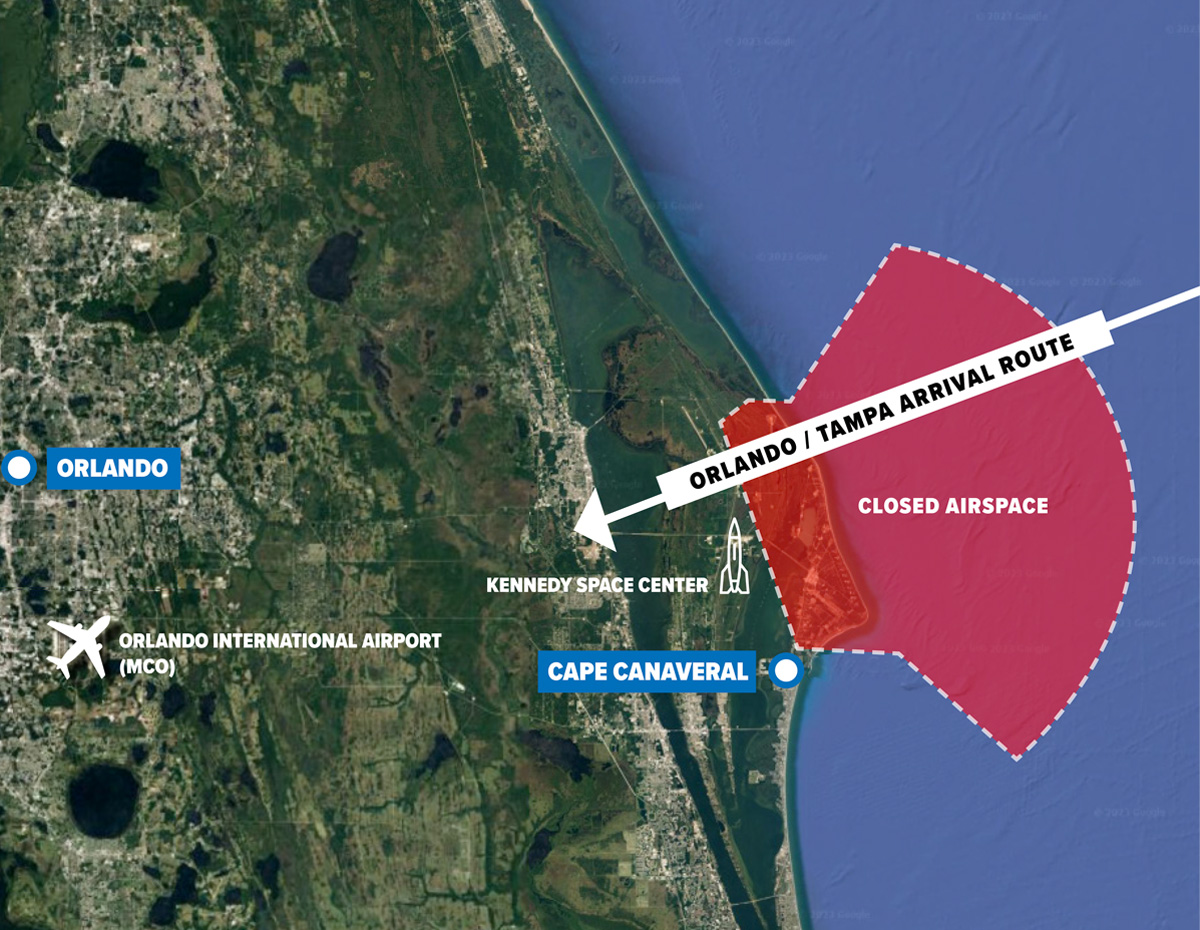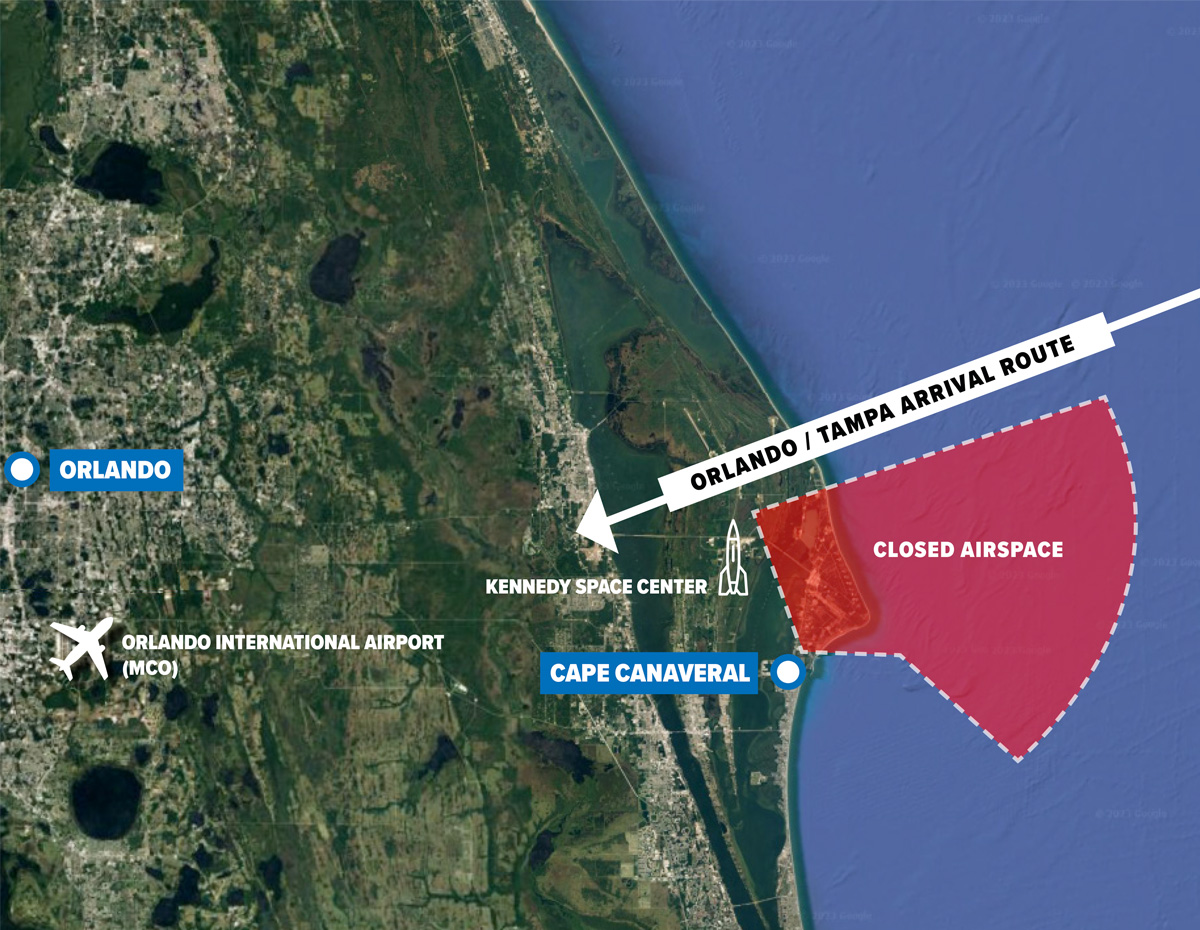FAA Safely Keeps More Airspace Open During Most Florida Space Launches
WASHINGTON — Thousands of passengers traveling to central Florida airports on dozens of commercial flights from the northeast will no longer experience delays or reroutes during a typical space launch.
Based on risk analyses conducted for every launch and working with the U.S. Space Force and space launch operators, the FAA determined the existing airspace restrictions for most Florida launches were too large and could be safely reduced.
More than 80 percent of the Florida launch trajectories are to the east and south. Sections of airspace to the north that had been traditionally closed for all launches can now remain open during most launches. Within this northern section is the busy overwater route from the northeast to central Florida airports in Orlando, Tampa, St. Petersburg and Sarasota, among others.
Before
Busy route from the northeast U.S. to central Florida closes during all space launches.
Flights were re-routed to other busy routes resulting in arrival delays.
For a Typical Launch:
- Up to 36 flights re-routed
- Up to 4,300 passengers affected
- Up to 300 minutes of delay
- Up to 1,500 extra miles flown
Previously for a typical launch, up to 36 flights were rerouted to congested overland routes, slowing up to 4,300 passengers and resulting in upwards of 300 minutes of delay and 1,500 extra miles flown. These flights can now remain on their most optimal and efficient routes more frequently. For 10 of the 12 launches that have occurred to date since the change took effect in April, no flights on this route were rerouted.
View the video and learn more about FAA efforts to safely and efficiently integrate space operations into the National Airspace System here.
Official news published at https://www.faa.gov/newsroom/faa-safely-keeps-more-airspace-open-during-most-florida-space-launches
The post FAA Safely Keeps More Airspace Open During Most Florida Space Launches first appeared on Reliable News.





More Stories
Additional Member States and first airports join EASA’s award-winning Data4Safety programme
EASA publishes first Easy Access Rules for small category VCA
EASA publishes CBTA Opinion for training next ATCO generation